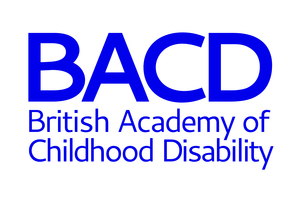START is an assessment undertaken with consultant paediatricians which assesses your abilities relating to clinical decision making as a new consultant, and is aimed at helping you identify and address any gaps that you may have in your training as you prepare for completion of training and practice as a new consultant paediatrician.
START is undertaken in your sub-specialty (neurodisability or community child health). START is normally hosted twice a year, in the spring and autumn; however for certain sub-specialties the relevant circuit may only be run once a year – please check the RCPCH website for up to date information relating to this.
Most trainees will complete START during their ST6 year when you are confident in being assessed in your sub-specialty, whilst allowing for enough training time to address any highlighted learning requirements. Priority for places is determined by your CCT date as recorded in your e-portfolio and the RCPCH highlight that you should not expect to be guaranteed a place even if you have applied previously, therefore it is important to start thinking about and planning for START early.
START is a circuit of stations which test different skills; these include a number of specialty specific scenario-based discussions as well as safeguarding; ward round and handover; safe prescribing; ethics, consent and law; logistics and organisation; conflict and risk management; teaching and critical appraisal.
There is no pass or fail mark for START, but you are provided with detailed feedback and recommendations to address any development areas. You should discuss your feedback with your educational supervisor and together put together a targeted PDP to help you address any areas needed.
Please see the RCPCH website for further information relating to START.
The RCPCH advise that START doesn’t require any ‘revision’ as the scenarios are examples of your ‘day-to-day’ work, but approached as if you are a day one consultant. Some trainees choose to approach the assessment with their ‘normal’ daily practice whereas other trainees feel more comfortable having done some preparation. The RCPCH suggest that you will probably find it helpful to familiarise yourself and keep up to date with NICE and GMC guidance on confidentiality, consent, capacity, duty of candour, colleague in difficulty, answering complaints and safeguarding.
If you choose to prepare in advance, it can be helpful to get in touch with other trainees who are undertaking START at the same time. The RCPCH START guidance for trainees by trainees also has useful information and ideas of key areas which may useful to focus on in your preparation, if you wish to do so.
Who to contact for information and advice
- BACD trainee representatives: BACD has three trainee representatives who are very happy to be contacted, including with questions on training in paediatric neurodisability, applying to specialty training or if you would like to get more involved with BACD [email protected].
- BACD regional representatives: BACD regional representatives are local points of contact for interested trainees to find out more about neurodisability training and careers, and to find out what is happening in your local area.
- Paediatric Neurodisability CSAC: The College Specialty Advisory Committees (CSAC) is a sub-committee of the RCPCH Education and Training Quality Committee, which helps to set the standards for the training programme. The CSAC are happy to be contacted with any queries or problems related to training.

